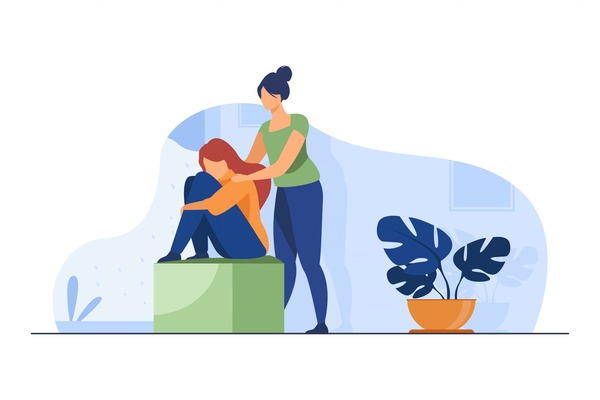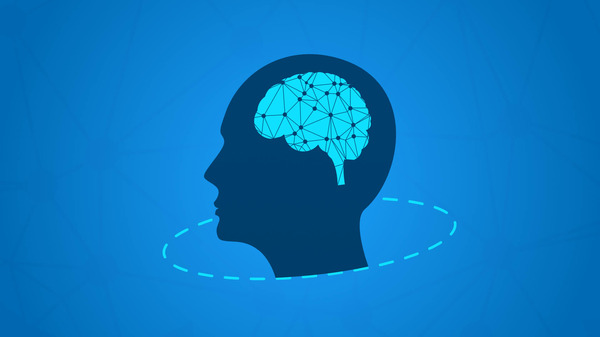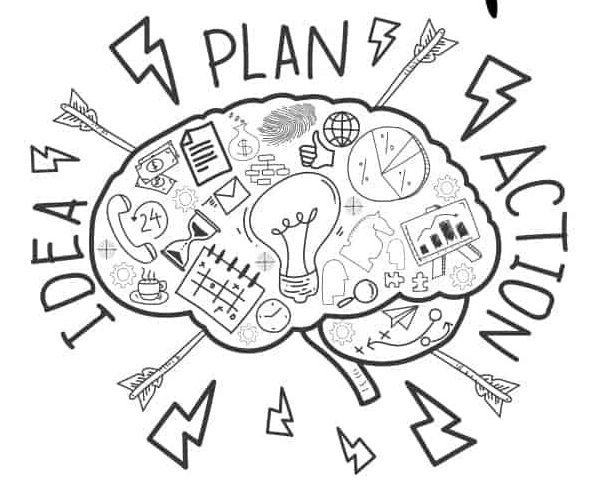Respect for life means respecting all living entities, not hurting them, truly communicating with them, loving them. For, when the heart is open and outlook positive, life becomes a bliss despite legion obstacles. On the other end, constricted outlook and vested interests wreak havoc in our lives. Inherent in each individual is the capacity to make one’s life blessed. That the process initially entails conscious efforts, later it becomes reflexive.
Afar, a turn in road is often perceived as a dead end, which it is not! “When you have exhausted all possibilities, remember this – you haven’t” said the motivational author, Thomas Edison. Acting on slur of the moment, many lost their lives.
A suicide, actual or such attempt, is an offshoot of a certain mental frame not tended befittingly. Suicidal ideation is a function of one’s thought pattern rather than one’s inability to cope with the adverse circumstances. It is distorted perceptions that lead to anti-life thoughts. We are not taught to be ready to suffer if we don’t accept the reality. Mind that the same set of odds are interpreted and perceived differently by two individuals. Ignoring what builds and promotes anti-life mindsets, most suicide prevention strategies address this grievous social issue cosmetically, often implicating this external factor or that.
World suicide prevention day on 10 September, and mental health day a month later often beat about the bush without addressing the core issues.
Overtly it is intriguing that the emerging world guru India, which attracts the largest seekers of peace and spiritual fulfilment should be home to the largest number of suicides in the world. That is what the latest (2022) data of NCRB (National Crime Records Bureau (NCRB) tells us, 1.71 lakh annual suicides in India. Suicide rates are higher for the youth than other groups.
Numbers can be confusing: The numbers need not frighten us. The key consideration is the rate of suicide. For, there are many countries with suicide rates (defined as cases per 100,000 population) higher than India’s: South Korea 34.9, Lithuania 33.1, followed by Hungary, Estonia, Russia, Japan, Australia, et al. For USA it is 14.21 as against 12.4 for India.
As usual with dominant anti-India lobby, the number-wise higher suicides has being politicised; the well-known medical journal Lancet attributed it to Indian government’s ‘ineffective handling’ of unemployment and economic issues. Mind that similar anti-India stance was witnessed in Corona period. Sidelining the highly effective Corona control measures including supply of wide distribution of vaccines, western media systematically tended to malign India’s image. UNICEF executive director Henrietta Fore is on record having declared, “The tragic situation in India should raise alarm bells for all of us.” At the helm lay the non-acceptance of India as an emerging leading power.
However, that does not warrant complacence because the yearly suicide rate in India is on the rise, particularly among students. It is second leading cause of death among youth aged 15-24 years. Among students, annual suicides increased by 4 per cent, for the overall population it increased by half i.e. 2 per cent as highlighted during the recent Annual IC3 Conference and Expo 2024 in a report, “Student Suicides: An Epidemic Sweeping India.” Most of the student suicides are result of inability to cope up with failure in competitive examination especially in National Eligibility-cum-Entrance Test (NEET) and Joint Entrance Examination (JEE), the common dream of most school pass-outs.
Kota in Rajasthan presents a singular example of the drift students are headed to. Not long ago a non-descript city, Kota has emerged as India’s gateway to crack coveted medical and engineering examinations with an estimated annual business worth ₹10,000 crore. Flourishing coaching business in the city prompted emergence of several residential schools as well, so the aspirants can join competition coaching directly without dislocation to another city. Due to limited seats in NEET and JEE, bulk of aspirants are left out; it is this lot that turns out to be susceptible to anxiety, depression and eventually heinous step of ending precious life. A UNICEF report ‘The State of the World’s Children’ outlines that in India one in seven in age range 15-24 years shows symptoms of depression and disinterest. Sadly, just 41 per cent of respondents felt the need for support services to address the mental health issues rendering its management difficult. As of 5 Sept 2024, the number of suicides across Rajasthan has touched 18 in 2024. If guardians and students explore and understand that there are avenues not less promising than via NEET and JEE, suicides shall be substantially reduced.
Current suicide prevention modalities like formal counselling, removing lethal devices from the vicinity of at risk persons are unable to make desired impact as these hardly address the root of the problem. Poor mental health begins in early upbringing of the child. Rather than motivating the youth to engage in scholastic, intellectual, spiritual, skills acquisition or such pursuits, a child is groomed as a hero to be served by parents, markets, school boards and society at large; all as if tend to pamper him. Initially parents offer him, irrespective of propriety, whatever he demands, and later a critical stage arrives when they are unable to say ‘No’. There is market targetting the immature minds looking at its own interests atop. The gap between what is available versus the imagined wants sets in loneliness in the child. Yet the biggest barrier to his growing as healthy individual is his entrapment in digital ethos.
Engagement with social media has become threat to the health of nations. Loneliness, an ‘emerging epidemic’ as US Surgeon General Vivek Murthy has termed it, is natural corollary of this malaise. We direly need a workable de-addiction strategy. He has suggested creation of phone-free zones at homes and in schools. He adds, making social media safer for our children is a daunting challenge.
Sharing of intimate concerns, and ethos & pathos is pre-requisite for healthy growth of individuals. Emphasis on consolidating personal assets & possessions inhibits free interplay of psychological and emotional needs rendering one lonelier by the day, and prone to anti-life thoughts. A generous heart, grateful attitude, spirit of cooperation and philanthropy, all inter-related, strengthen intimate bonds. Harmony, love and kindness are the basic attributes of Nature, and it warrants same from the underlings. Those maintaining close relationship are less likely to develop stress, anxiety, addiction, depression and ultimately break down. They also lead a happier, more peaceful life.
Negative role of celebs: So ironical that our celebs, the role models of youth, could help them stay along creative track. Alas, they choose to promote gambling spirit among immature minds and spoil their lives.
Agenda ahead: In days to come, with more & more people not divulging their thoughts shall eventually turn lonelier, and harbour suicidal thoughts. You can identify some of them. See what you can do with them. Yet, above all, keep yourself fit; move out of your shall, take genuine interest in them. Then you can help them.
. . . . . . . . . . . . . . . . . . . . . . . . . .. . . . . . . . . . .. . .
Earlier version of this article was carried in edit page of Orissa Post on 10 September 2024, the World Suicide Prevention Day. Link of pdf article in newspaper: https://odishapostepaper.com/m/250074/66df5151d8cd8
…. …. …. …. …. …. …. …. …. …. …. …. …. …. …. …. ….





We are a group of volunteers and opening a new scheme in our community. Your web site provided us with valuable info to work on. You have done a formidable job and our entire community will be thankful to you.
Excellent post however I was wondering if you could write a litte more on this topic? I’d be very thankful if you could elaborate a little bit further. Appreciate it!
If you have a query on a specific point, please mention (at my e-mail teenbarthwal@gmail.com). I shall be glad to elaborate as far as I can.
I can’t precisely express how much I admire the efforts you have put into producing this outstanding piece of content. The clarity of writing, the depth of analysis, and the abundance of information left me simply impressed trailing a lingering impact. Thanks for offering your wisdom and insights.
Your words make up all the efforts I make and costs incurred. You may understand, such pursuits, if done in earnest, hardly bring material return.
This is really interesting, You’re an overly professional blogger. I’ve joined your feed and look forward to seeking extra of your excellent post. Also, I have shared your site in my social networks!
It’s a shame you don’t have a donate button! I’d most certainly donate to this brilliant blog! I suppose for now i’ll settle for bookmarking and adding your RSS feed to my Google account. I look forward to new updates and will share this site with my Facebook group. Talk soon!
‘Donate Now’ button clearly appears in front page. Thanks for your kind words.
That is very attention-grabbing, You are an excessively skilled blogger. I have joined your rss feed and stay up for in search of more of your magnificent post. Also, I’ve shared your web site in my social networks!
Lot of thanks, Sir! [I wish your name would have been in English].
Thank you for another great post. Where else could anybody get that kind of information in such a perfect way of writing? I’ve a presentation next week, and I’m on the look for such information.
I feel that is among the so much significant info for me. And i am happy reading your article. However wanna commentary on some normal issues, The site style is ideal, the articles is actually nice : D. Good process, cheers
Thank you for the auspicious writeup. It actually used to be a enjoyment account it. Look advanced to far added agreeable from you! By the way, how could we communicate?
Thanks. My email: teenbarthwal@gmail.com